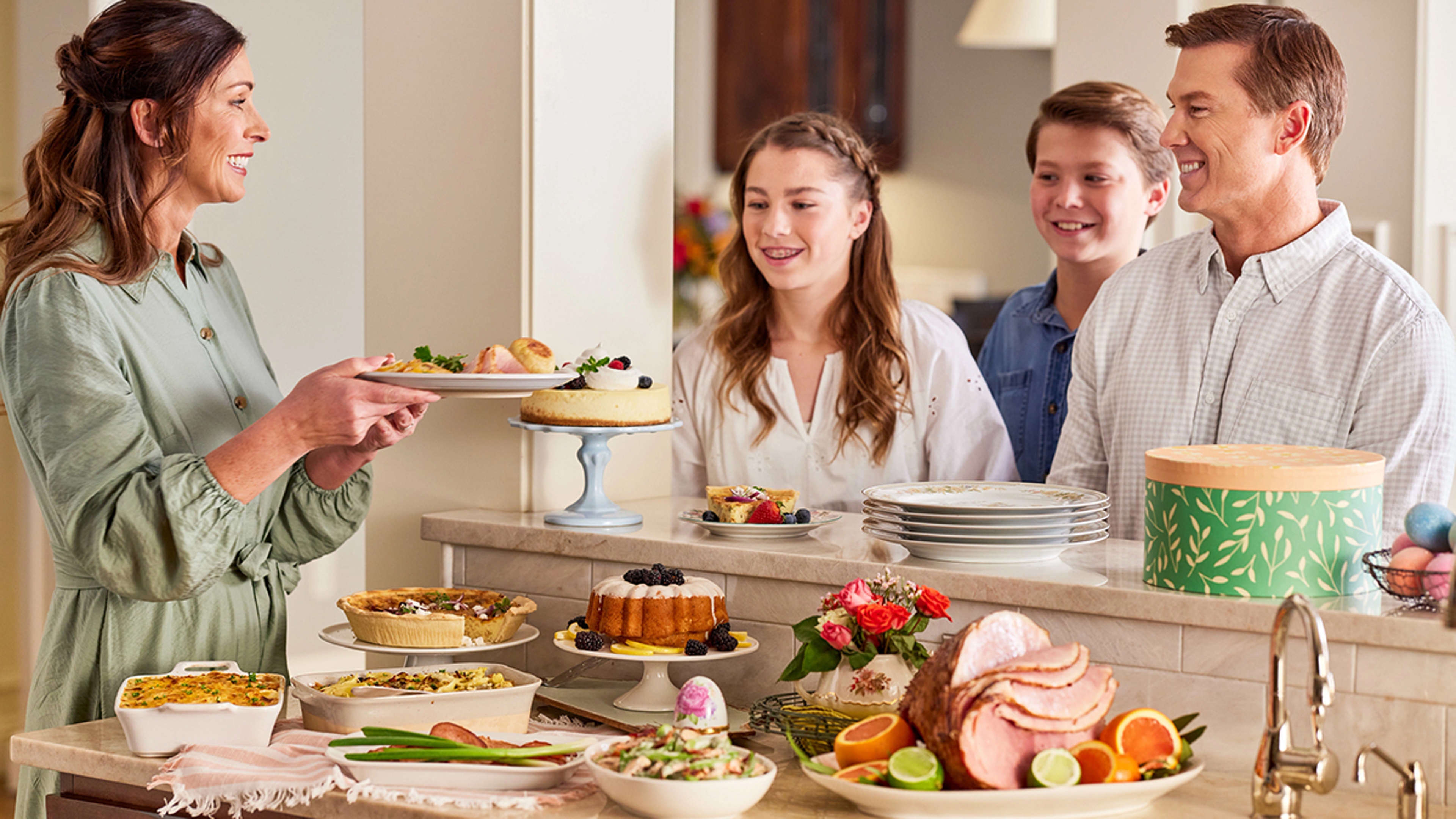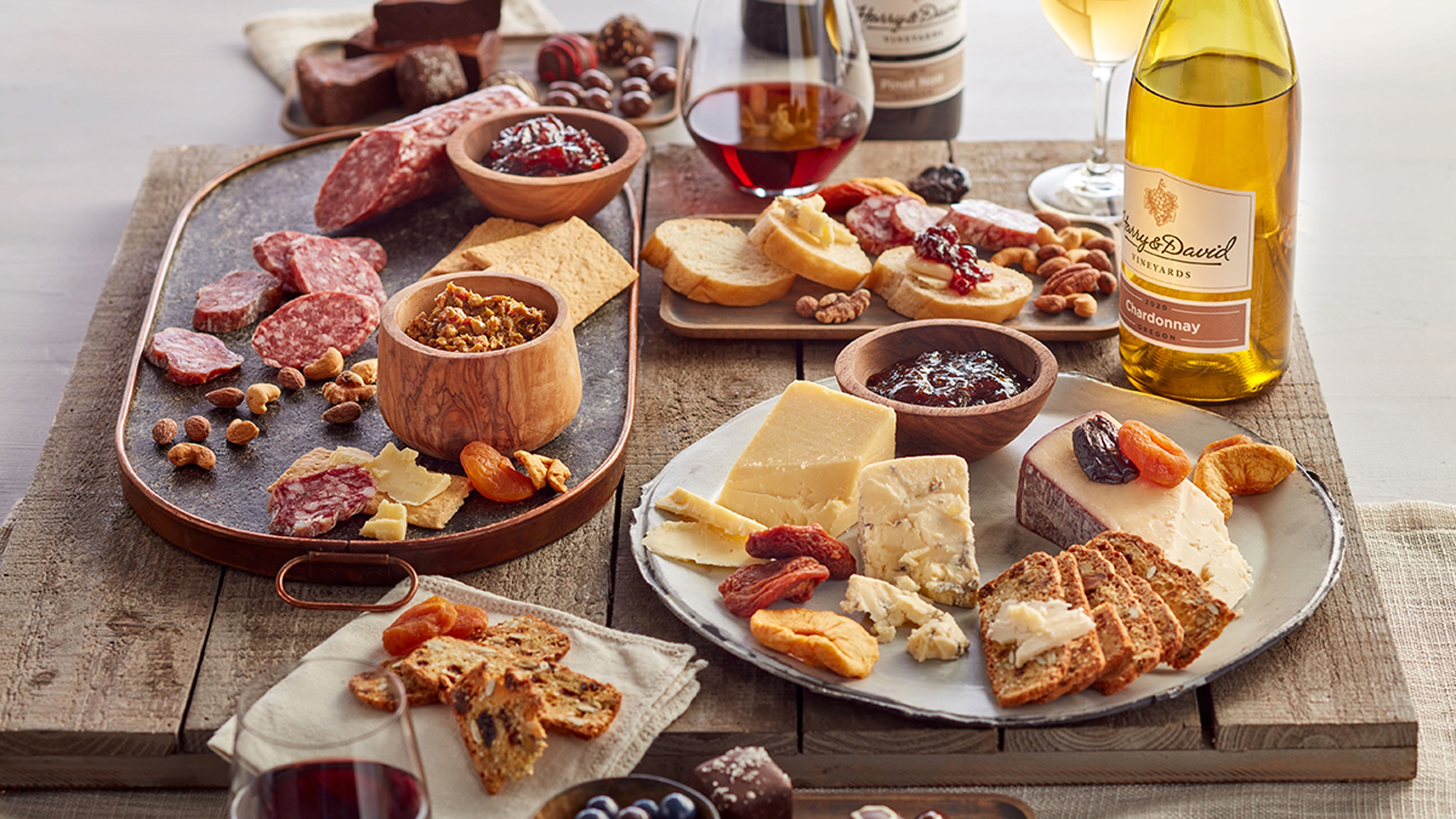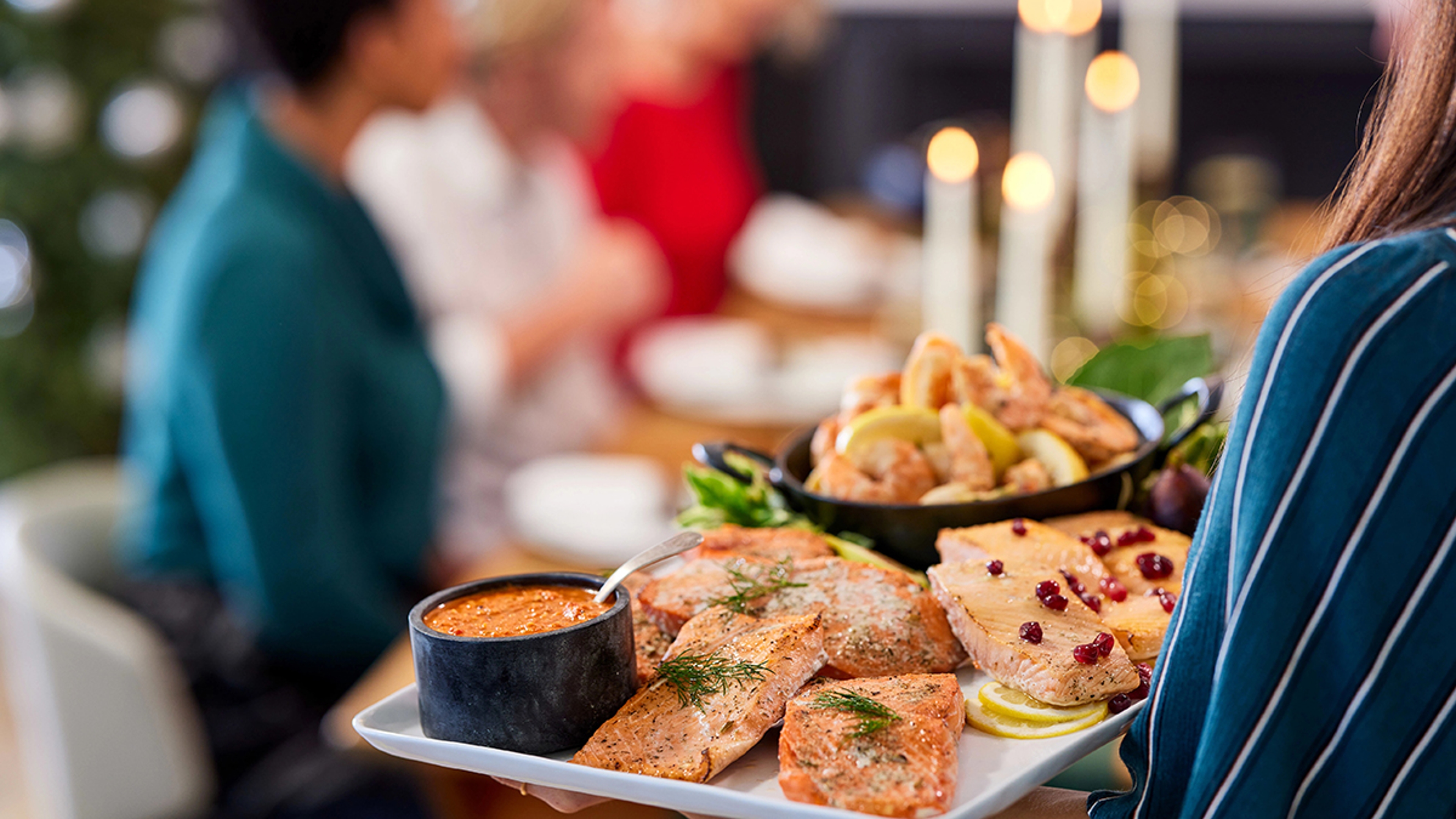Responsible Pork: Why It Matters
The Arbuckle family raises pasture-raised pork in Maine. Learn why it may be the best you can buy.
Apr 25, 2023
This article originally appeared on the Vital Choice blog, a sister brand of Harry & David.
John and Holly Arbuckle and their two children live on the coast of Maine with 250 pigs. It's a startlingly beautiful farm: "It's like Norway, it's a miniature version of the cartoon, Frozen," John says.
The farm's beauty isn't incidental. Singing Pastures supplies Vital Choice with its pork — chops, bacon, breakfast sausage and bratwurst — frozen at its peak in nutrients and made from happy animals free of antibiotics and growth stimulants. The green, open pastures help keep their pigs in naturally abundant health.
John spoke by video with us about his passion for organic, regenerative agriculture and responsibly raised pork.
Vital Choice: Your farming tradition goes back a long way.
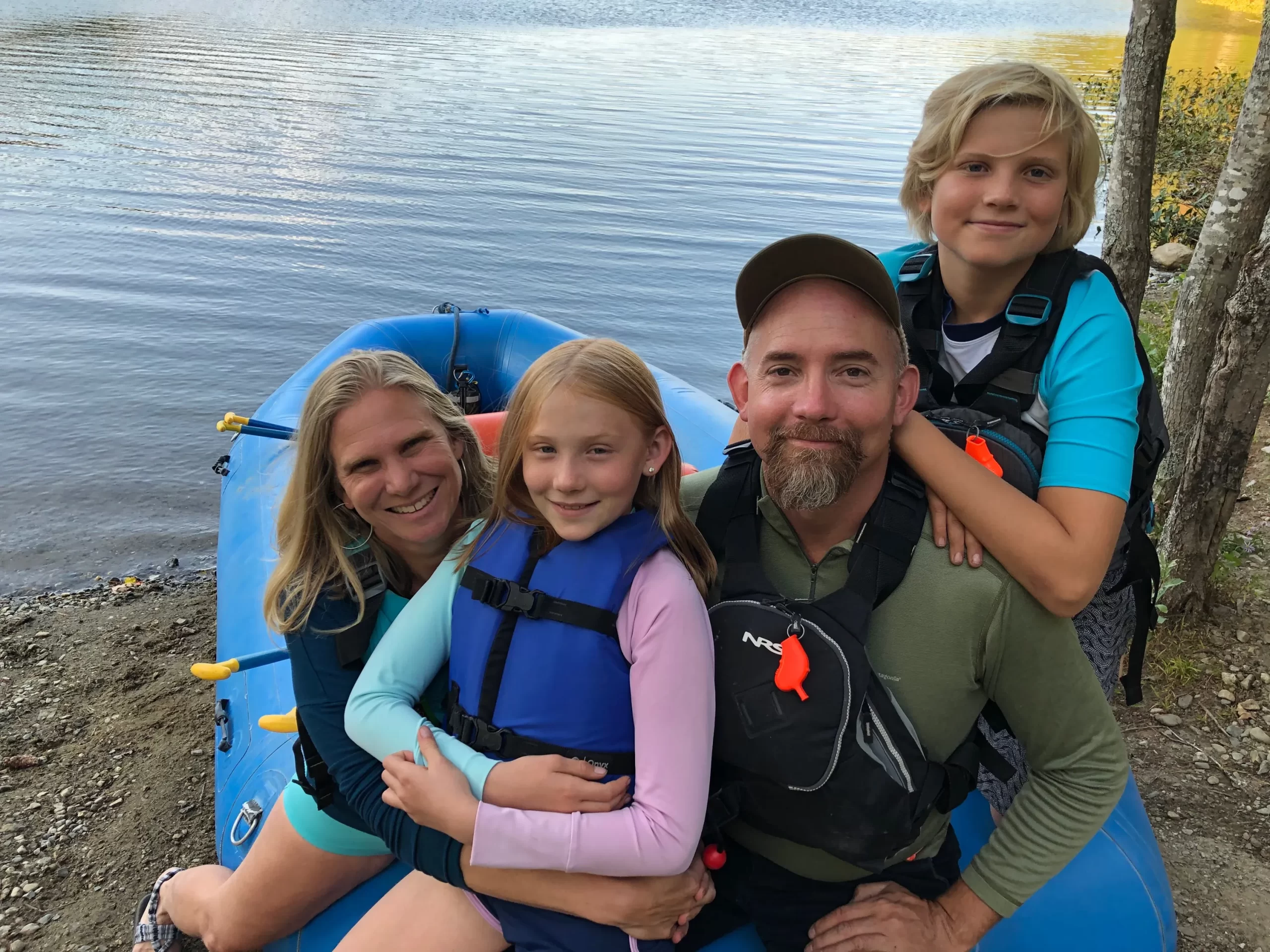
Arbuckle: My grandmother could accurately document nine generations, but we feel it is more than that. Might be as high as 12 or 13 generations. In nine years, we are celebrating our 300th consecutive year farming in America. It's been in three different states: West Virginia in the 1700s, and then we moved to Illinois and were there for seven generations. My wife is from New England, so now I live in New England.
My family farm growing up was a conventional farm, about a 1,000 acres of corn and soybeans. We raised confinement pigs and 60 to 80 beef cows every year.
Were you uncomfortable with the animals' conditions?
I thought we could do better. The welfare of the animal has to be factored in.
Tell us about your career.
I worked as an intern at organic farms; I really have always been a lifestyle guy and I enjoy raising animals. We first started our own farm in 2010. We raised chickens, grass fed beef, pasture-raised pork and Thanksgiving turkey, and little by little focused it on pork. We've had this farm six years.
The property looks idyllic.
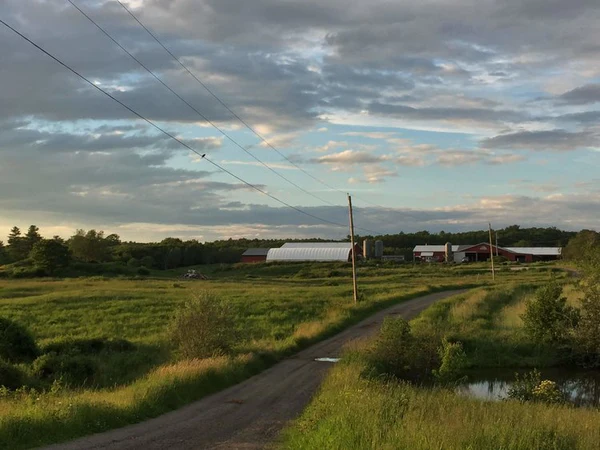
The land is certified organic. We'll never use pesticides, fertilizers, or genetically modified organisms.
This land was previously a large-scale dairy operation. In Maine, winters are the real deal. We have a lot of shelter for our animals. We have enormous sections of woods. The whole property is five miles in circumference. There is plenty of microbial life, rocky hilltops and shaded groves where acorns fall, and places with lots of wildflowers, and there's big spikes of rocks, several ponds, and a half-dozen creeks.
That sounds like you could film movies there like The Hobbit.
I jokingly call it the "shire." Everybody's got a bucket list and you might as well go for it sooner than later.
The land had been de facto organic 20 years before we came here.
Are there terms for meat that might mislead people?
“Natural" doesn't mean anything. It's the lowest bar. Our pork is pasture raised and there are gradients on how well you pasture raise. We invited an organization called the Savory Institute, which came and did what is essentially an audit. We got the highest score they had ever given a pig farm in the world.
A pig is essentially a destructive animal. Cattle and sheep are lighter on the land. We move them every few days and do a lot of things to keep the pigs engaged and interested so they don't become destructive.
Left to themselves, they're not a healing influence. We hear about the damage done by wild boar in California. Domestic pigs would be happy to root up a piece of land and stay there. But that's not healing.
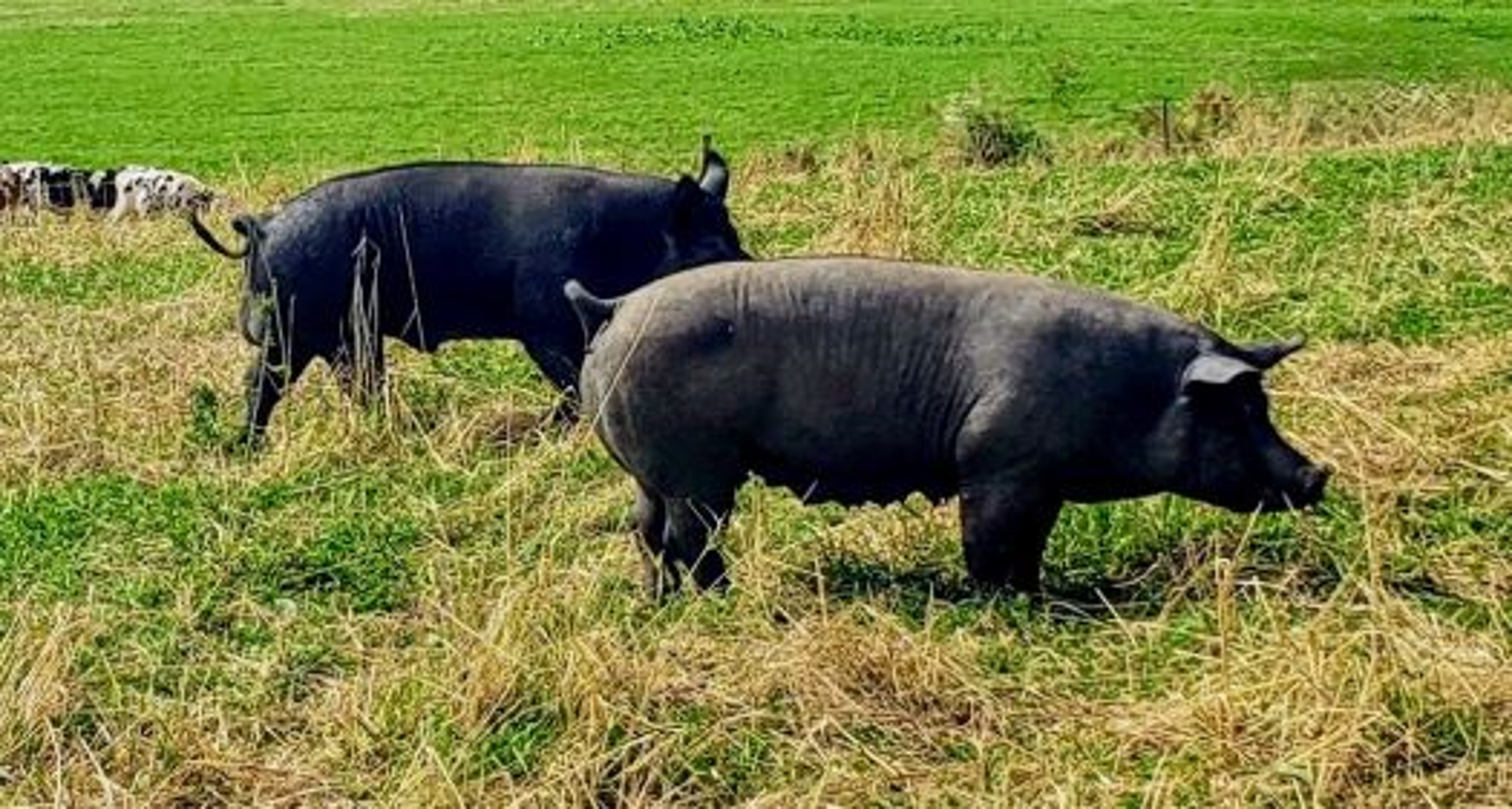
The landscape requires an intense grazing event followed by a meaningful recovery period. Historically all grasslands on earth had a large grazing mammal and that large grazing mammal will have predators. Take the bison that roamed the high plains of North America. They were kept tightly bunched by wolves. They're grazing, trampling, and manuring the landscape as they go across it like a giant rolling pin. They would eat all the grass. The high plains were a gigantic buffet for the bison. They would create their own rotation.
The earth responds to that sort of thing amazingly well. The metaphor I use is that athletes will engage in intense exercise, which will make their muscles sore, and then the muscles come back stronger. That's a universal truth that applies to all biology — a disruptive event followed by recovery period equals regeneration, growth, improvement.
For thousands of years, the bison were intensely grazing. We do the same thing with pigs when we move them.
If you remove bison, cattle, caribou, or wildebeest, depending on which continent or ecosystem you are talking about, if you just have a grassland, it's in free fall. It's losing its diversity, losing ability to create soil structure, no longer sequestering carbon at the same rate. The land needs animals as much as flowers need bees. You cannot have healthy land without animals on it.
The grass we have doesn't do well without being grazed. We graze it when it's at its maximum in nutrition. Then wait 25 or 30 days and it comes back better than before. We continually hit the reset button.
When we truly look at a healthy ecosystem, we can't look at a catalog of species. We're looking at one gigantic organism and all of these species are organs, cells of that greater organism.
Including you?
Yes, human beings can have a long term creative effect on the earth.
That's your purpose.
Yes.
I've never seen anything in the media about human beings doing anything other than ruining the earth when they touch it for commercial purposes.
Farming is the exact opposite especially the more we get into regenerative, life giving healing agriculture. All of us are living on degraded land. If something is wounded, it should be able to be healed.
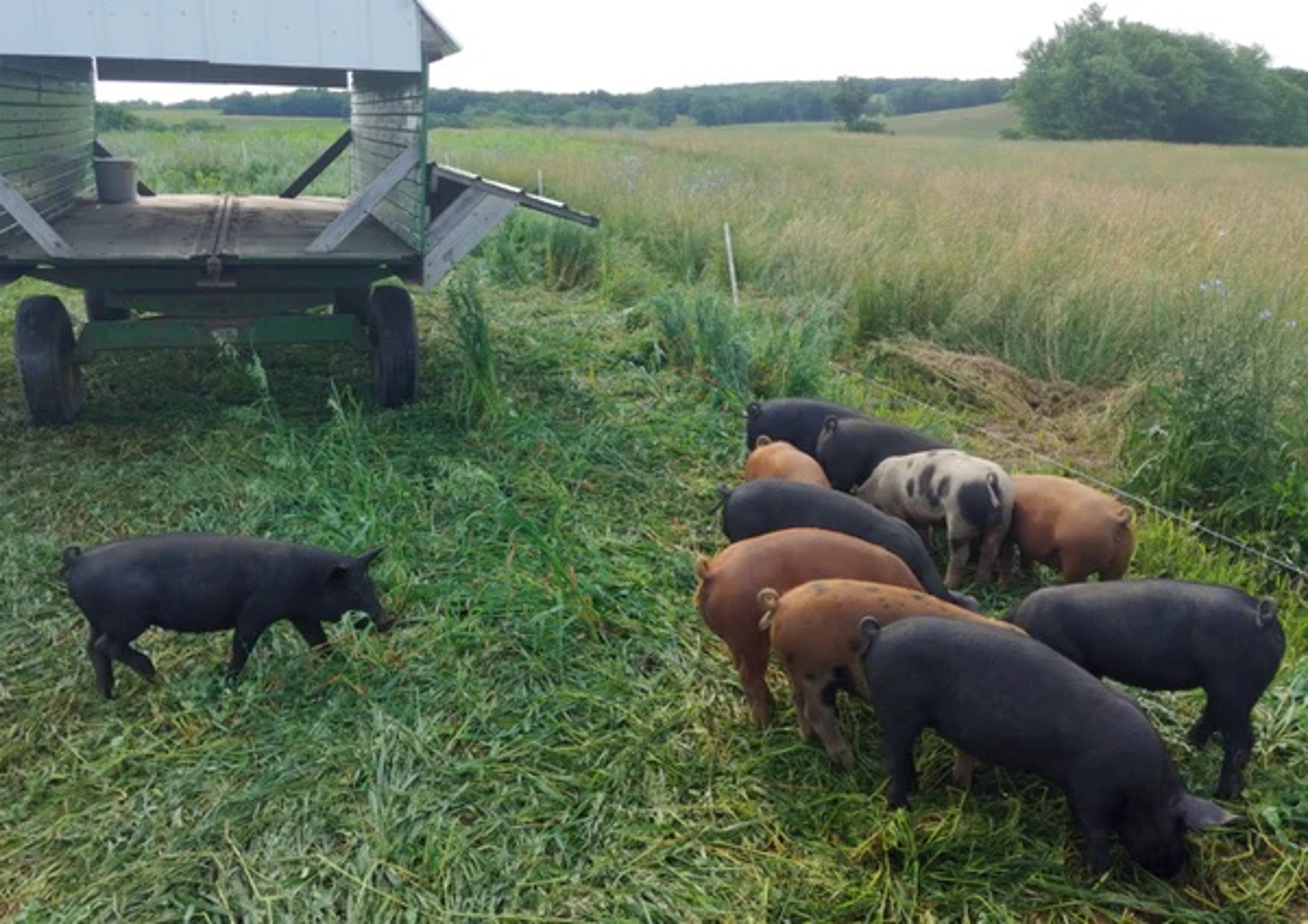
Have you seen changes in the land while you've been there?
Oceanic changes. We had one field that was pure thistle and we trampled it four times and now there isn't any thistle. We didn't have to spray or mow or get out tractors. We altered the makeup of the soil in a positive way that allowed the nutritious life-giving grasses to outcompete the thistle.
The animal has the spa experience, always on clean ground, always happy, lying in the shade on hot days, running around wildflowers when it's cool. Their ears are natural, their tails are natural, their teeth are natural [Factory farms alter pigs to suit industrial conditions].
We sequester tons of carbon per acre, we drought-proofed and flood-proofed our farm, and that in turn creates an ecosystem where wildlife is very much at home. We have species on our farm that aren't on the other farms. We are one of the largest ground nesting bird sanctuaries in the state of Maine. It's because we're a healthy grassland. We have beaver, coyotes, otter, moose, lots of foxes and bobcats, tons of bird species.
What's the advantage for the consumer?
Knowing that you can purchase with confidence, knowing that your purchase creates wildlife habitat, and the pigs are happy and healthy, and do not live in crowded situations that require antibiotics to stay healthy. The more green grass that a farm animal eats the higher the nutrient density of the meat. When we send out samples to a food science lab, we get incredible results. There's a really good omega-3 / omega-6 ratio to our pork, which is very rare. Factory pork is exclusively living on genetically modified corn and soybeans. They cannot get the omega 3 you see in grass-fed beef or Vital Choice wild salmon. Our pigs are one step closer.
Is your sausage a special recipe?
I took all the ingredients I refused to include and there wasn't much left over. Our breakfast sausage is pork, salt, pepper, and sage. You're not tasting the seasoning, you're tasting old fashioned pork. The bratwurst includes garlic and onions.
One of the selling points of Vital Choice's fish is that its frozen. Is that also an advantage with pork?
That's the beauty of a freezer. We can stop the hand of time.
Any cooking tips for us? How do you make pork chops?
I like grilled pork chops with apple butter, I enjoy some fat on it. We make our own bacon, the same we sell to Vital Choice. We cook it on a cookie sheet in the oven. It's more even, there's heat from both sides, and it does a lot less curling.
.svg?q=70&width=384&auto=webp)




